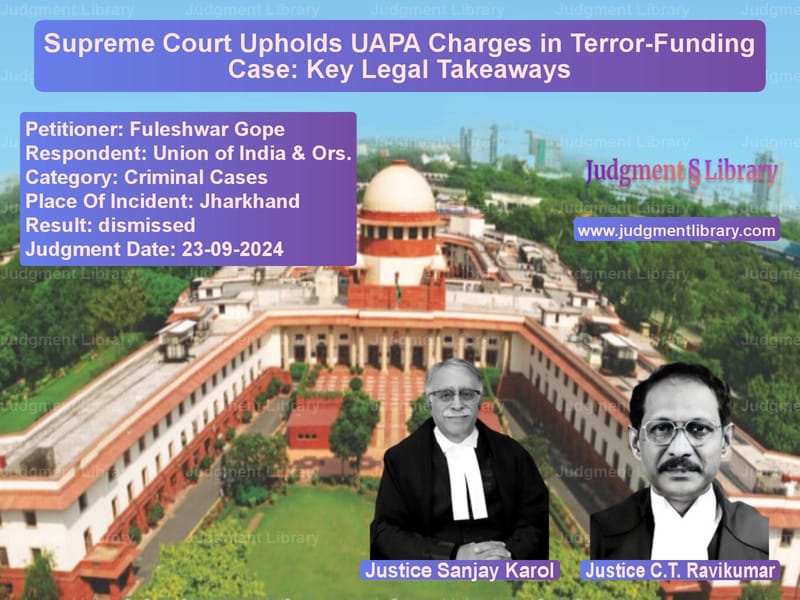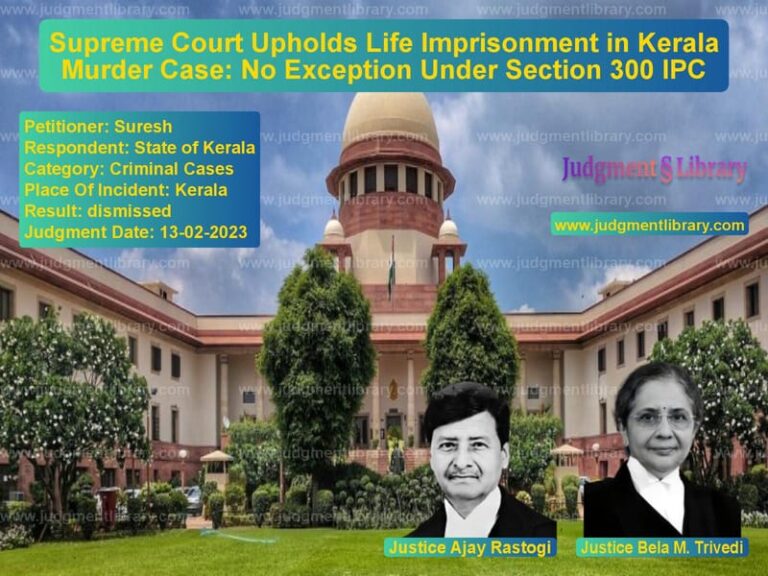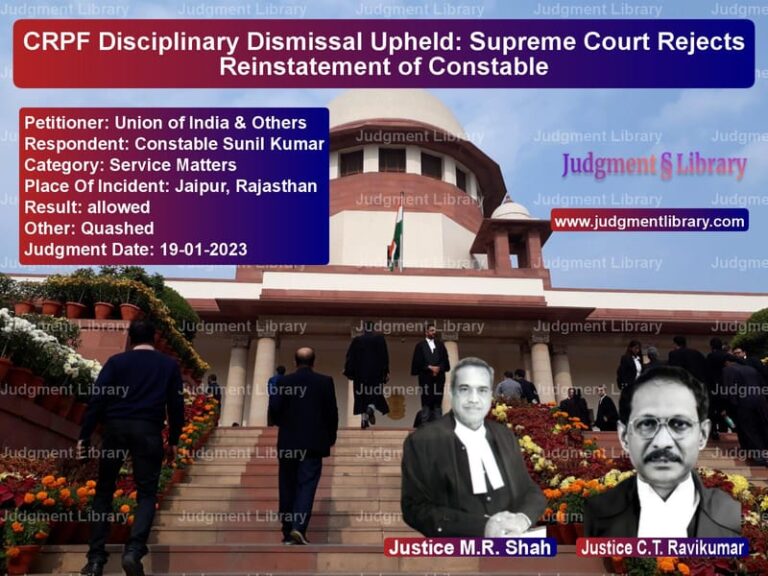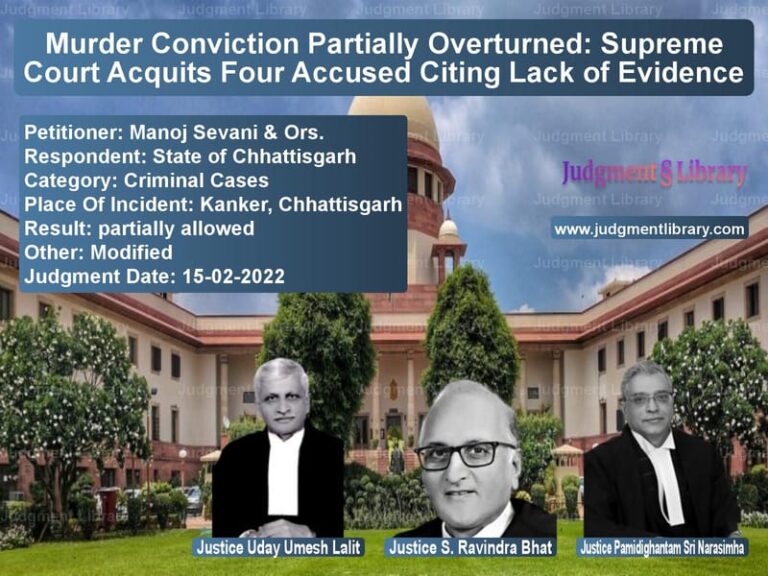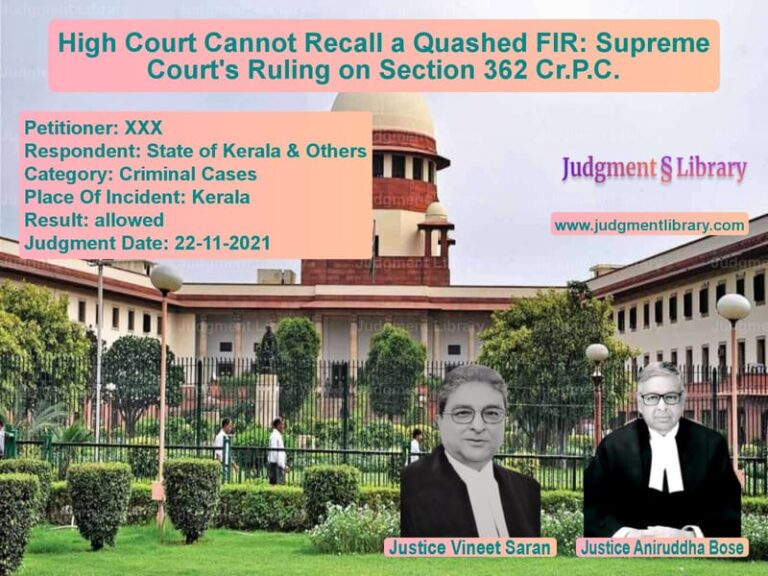Supreme Court Upholds UAPA Charges in Terror-Funding Case: Key Legal Takeaways
The case of Fuleshwar Gope vs. Union of India & Ors. is a significant ruling addressing terror financing, the application of the Unlawful Activities (Prevention) Act (UAPA), and the power of the National Investigation Agency (NIA) in conducting investigations. The Supreme Court upheld the validity of sanctions under UAPA while rejecting the appellant’s plea to quash charges framed against him.
The ruling provides clarity on procedural aspects under UAPA, particularly on the time-bound sanctioning process, independent review, and evidentiary requirements in cases involving terrorist financing.
Background of the Case
The appellant, Fuleshwar Gope, was accused of associating with the People’s Liberation Front of India (PLFI), an outlawed organization involved in extortion and terror financing. The prosecution alleged that:
- The appellant conspired with Dinesh Gope (A-6), the PLFI chief, to collect extortion money.
- He formed a company, M/s Shiv Shakti Samridhi Infra Pvt. Ltd. (A-20), allegedly to launder terror funds.
- The company’s bank account was used to funnel funds from both legal and illegal sources to support PLFI.
- Rs. 25.83 lakh of demonetized currency linked to PLFI was deposited in a bank in 2016.
Legal Arguments
Arguments by the Appellant (Fuleshwar Gope)
- The sanction for prosecution under UAPA was delayed and violated procedural requirements.
- There was no independent review before granting the sanction.
- He was wrongly implicated, as he was only a daily-wage Munshi (clerk) whose identity was stolen by co-accused.
- His company (A-20) was not involved in terrorist financing.
- The charges were based on circumstantial evidence and lacked direct proof of involvement in terrorism.
Arguments by the Respondents (Union of India & NIA)
- The sanction order followed due process under Section 45 of UAPA and the 2008 Rules.
- There was substantial evidence linking the appellant to terror funding and laundering proceeds of terrorism.
- The NIA’s investigation showed that the company (A-20) was used as a front for financial transactions linked to PLFI.
- The appellant’s relationship with Dinesh Gope (A-6) and other PLFI operatives was well-established.
Supreme Court’s Observations
The Supreme Court analyzed the legal provisions under UAPA and addressed key questions related to sanction validity, procedural lapses, and the burden of proof in terror-financing cases.
1. Can the Validity of a Sanction Order be Challenged at Any Stage?
The Court held that the validity of a sanction should be challenged at the earliest opportunity before the trial court. However, belated challenges will not automatically be dismissed if valid grounds exist.
2. Are Statutory Timelines for Granting Sanctions Mandatory?
The Court ruled that the timelines under Rules 3 & 4 of the UAPA (2008) Rules are mandatory. The government must strictly adhere to the seven-day limit for independent review and granting sanction.
3. Was the Independent Review Process Followed?
The appellant argued that the government granted the sanction within one day, indicating non-application of mind. However, the Court held that:
- The review authority included a retired High Court judge and a retired Law Secretary.
- The authorities conducted a detailed examination of the case materials.
- Merely completing the process in a short period does not indicate non-application of mind.
4. Does the Exemption under Section 22A of UAPA Apply?
The appellant claimed that he was not in charge of the company’s affairs and should be exempt under Section 22A of UAPA. The Court ruled that:
- Being a director of a company linked to terror funding makes the appellant prima facie responsible.
- The burden is on the appellant to prove that he had no knowledge of the transactions.
- Such determinations must be made at the trial stage based on evidence.
Final Verdict
The Supreme Court dismissed the appeal and upheld the appellant’s prosecution under Sections 17, 18, 21, and 22 of UAPA. The ruling reinforced:
- The need for strict compliance with procedural safeguards in UAPA cases.
- The role of independent review in sanctioning prosecutions.
- The burden on the accused to prove lack of knowledge in terror-financing cases.
This landmark judgment strengthens anti-terrorism laws while ensuring procedural fairness.
Petitioner Name: Fuleshwar Gope.Respondent Name: Union of India & Ors..Judgment By: Justice Sanjay Karol, Justice C.T. Ravikumar.Place Of Incident: Jharkhand.Judgment Date: 23-09-2024.
Don’t miss out on the full details! Download the complete judgment in PDF format below and gain valuable insights instantly!
Download Judgment: fuleshwar-gope-vs-union-of-india-&-ors-supreme-court-of-india-judgment-dated-23-09-2024.pdf
Directly Download Judgment: Directly download this Judgment
See all petitions in Terrorist Activities
See all petitions in Money Laundering Cases
See all petitions in Fraud and Forgery
See all petitions in Judgment by Sanjay Karol
See all petitions in Judgment by C.T. Ravikumar
See all petitions in dismissed
See all petitions in supreme court of India judgments September 2024
See all petitions in 2024 judgments
See all posts in Criminal Cases Category
See all allowed petitions in Criminal Cases Category
See all Dismissed petitions in Criminal Cases Category
See all partially allowed petitions in Criminal Cases Category

